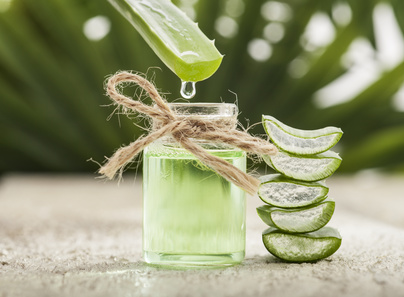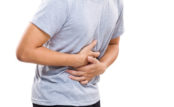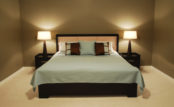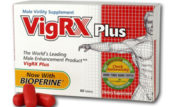Acne is an embarrassing condition of the skin. You may associate acne with the red skin and pimples of high school, and there’s no disputing that acne is a common symptom of the teenage years. But acne affects between 40 and 50 million Americans, many of them adults.
Why are teenagers prone to acne? The short answer is that hormonal changes trigger oily skin after puberty. Increased testosterone, in both genders, tells the skin glands to produce more oil to keep the skin moist. Acne forms when the oil mixes with dead cells. This clogs the skin’s pores and can stimulate bacteria growth. Pimples can form if the bacteria leaks into the surrounding tissue.
Acne usually improves by adulthood. That said, outbreaks can occur well into one’s 40s, 50s and beyond. Some life events, including pregnancy, can trigger a surge in testosterone and cause further outbreaks. But more likely, acne is a manageable condition that, although persistent at times, is usually within your control.
The following tips may help you get rid of acne.
Keep your face clean. Bacteria, and the spread of bacteria amongst dead skin cells and oily skin is the leading contributor to outbreaks. You can get rid of acne with a mild daily facial cleanser, to remove dead cells and impurities of the skin. Use warm, but not hot water, and always dry your face with a clean towel.
Use a daily facial moisturizer as well. While oily skin contributes to acne, it’s also important to keep the skin hydrated to counter the drying effect of many acne treatments. Use a gel-based moisturizer for oily skin or a cream or lotion if your skin is dry.
Use an over-the-counter acne treatment product, preferably with benzoyl peroxide, which sheds skin and reduces bacteria. Be aware that benzoyl peroxide is potent and can trigger further redness, so start with a small amount, and increase or decrease as necessary.
Avoid using make-up, at least during an outbreak, and particularly foundation powder or blush. Select water-based cosmetics when possible, as oil products can cause acne, and remember to wash it off at the end of the day.
Notice what you put in your hair. Oils, chemicals and some hair products can drip on to the face and irritate the skin. Use a gentle conditioner and shampoo, and if you have long hair, keep it pulled away from your face.
Keep your hands away from your face, and resist the urge to prop your cheeks or chin, or rest your head on your hands, as this can spread bacteria and irritate the skin. Don’t pick at pimples with your fingers either – use a clean tweezer.
Avoid the sun. Yes, we need a little sunlight for vitamin D, but excessive UV rays can irritate the skin. Moreover, some acne treatments can make skin more sensitive to the sun. Use an sunscreen with an SPF 15 or higher when you can’t avoid sun exposure, and preferably a non-acnegenic product at that, to prevent further outbreaks.
Eat a skin-friendly diet. We’ve all heard the rumor that chocolate and greasy foods can cause acne, and there’s some truth to that. Eat plenty of fruits and vegetables, particularly those that are high in vitamin A and beta-carotene, like carrots, sweet potato, apricots, kale and spinach. And avoid greasy foods.
Exercise. Remember that skin is the body’s largest organ, and it will benefit from regular exercise as will the rest of your body. Moreover, exercise reduces anxiety and increases blood flow throughout the body. That said, avoid tight clothes or exercises that rub against the face, especially in a public gym, as bacteria can easily spread with such activity. Always shower after exercise, as well.
Finally, relax. Numerous studies show that our mental state affects our health, and that includes our skin. Excessive stress or anxiety is linked to increased acne. Ask yourself what’s causing the stress in your life. Look for ways to reduce and manage your stress. And remember, you can get rid of acne with some stress-busting activities and habits, including diet and exercise.
Some final notes on acne treatment and prevention. Always read labels on skin products. Keep bacteria-spreading factors, including hands, used towels, clothing and any material in a public setting away from your face. Stay clean, and keep your chin up. Acne can be embarrassing, but it’s usually within your control. You can get rid of acne with healthy habits and a little TLC.
We protect your privacy, and we use cookies to optimize your experience. Continued use of the website means you accept our Cookie Policy and Privacy Policy.




